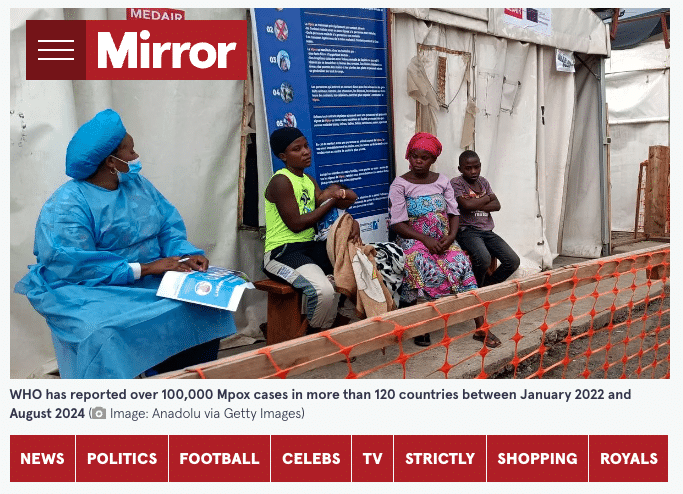In recent months, cases of mpox (or monkeypox) have been rising globally. It become a concern for travellers, especially in Central Africa. Between January 2022 and August 2024, the World Health Organization has reported over 100,000 mpox cases in more than 120 countries. The infectious disease can cause a painful rash, enlarged lymph nodes, fever, headache, muscle ache, back pain, and low energy.
Following an outbreak in 2024, there has been an increase in cases of the highly transmissible Clade I strain. As a consequence, now more than 60 destinations have health protocols in place at entry points, such as thermal screenings and contact tracing.
“The Democratic Republic of Congo (DRC), Burundi and Central African Republic (CAR) remain at the forefront of the outbreak. Neighbouring countries, including Kenya, Uganda, and Rwanda, are on alert and have increased border surveillance to prevent further spread,” said Farhan Rafi, Travel intelligence analyst at Riskline.
“Outside Africa, the situation is generally milder. Countries like Thailand, Sweden, and Malaysia have reported only a handful of isolated cases. Governments in these regions are acting swiftly, and travellers may also encounter health checks at airports.”
Governments have introduced precautionary measures at entry points to avoid significant disruptions whilst maintaining the safety of both travellers and civilians. As such, Farhan warned: “Travellers should plan extra time for their journeys due to minor delays resulting from potential screening procedures at airports, including temperature checks, contact tracing and health declarations.
“Those with a travel history to Mpox-affected countries may be subject to more thorough screening or random testing.”
Countries with reported cases and border surveillance include: Argentina, Angola, China, Egypt, India, Indonesia, Malaysia, Mexico, Morocco, Philippines, Singapore, South Africa, Turkey.
Mpox does not pose a significant risk for the majority of people. However, certain groups need to be extra cautious such as those with weakened immune systems, the elderly, or individuals travelling to areas with active outbreaks.
Read the full article in the Daily Mirror.
Photo credits: Daily Mirror

